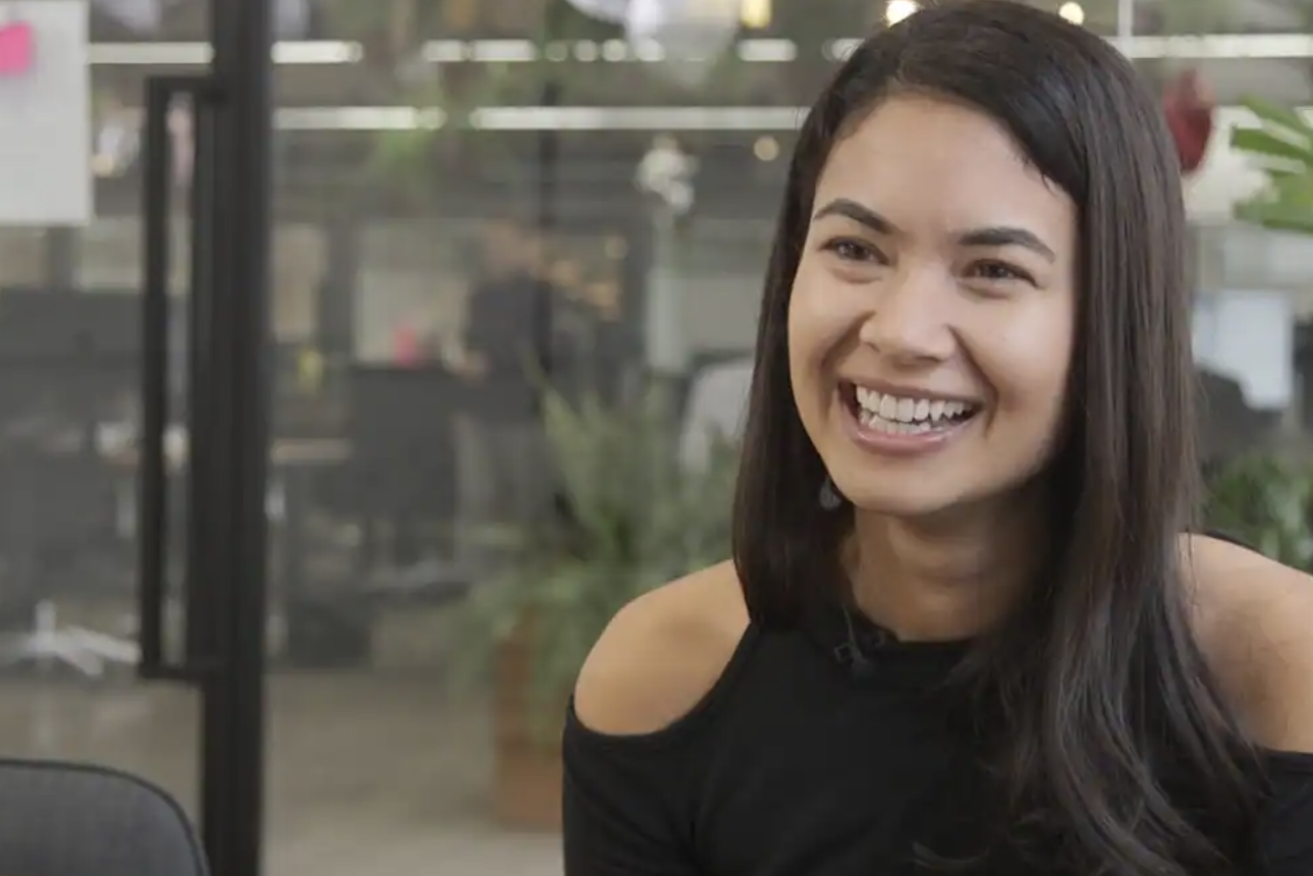Oh to live like an 11-year-old – full of spirit and with no idea what you don’t know
We have nothing to fear but fear itself, a wise man once said. But did that wise man ever have to prove his success was no fluke? writes Michael Blucher


Canva founder Melanie Perkins not only created a multi-national business, but she has continued to drive its growth from $135 million to $28 billion. (Image: SBS)
It all started with a conversation about creativity.
“I haven’t got a creative bone in my body,” She Who Must Obeyed attested, a confession that triggered widespread dissent among the gathered dinner guests.
“Rubbish – look at your offspring,” one of her closer confidants responded. “It’d be hard to find three more out of the box thinkers than that trio. And your genes have got to be mixed up in there somewhere.”
The loyal confidant had a point, the hostess’s mind drifting involuntarily to the blow dart gun her middle child had presented his Grade 6 teacher as a Christmas present. Powerful, accurate and designed by hand, from scratch.
“Love that kid,“ the teacher enthused at the time, conceding it was the first blow dart gun he’d received from a junior school student in his 40 plus years in education.
Yes, it’s not the young minds that lack creativity – it’s when we age and become more self conscious, less willing to express ourselves through fear of overstepping the accepted social boundaries. That’s around the time blow dart guns disappear from the Christmas gift list, replaced by handkerchiefs and cheap aftershave wrapped in cellophane.
Wouldn’t the world be wonderful if we had more 11 year-old thinking and expression of self?
Much I’m sure to the relief of the readers, the dinner conversation didn’t stall on blow dart guns. It moved seamlessly to creativity in business – new ideas and entrepreneurship, the type of which has been fuelling our economy for much of the past decade, while interest rates have been zilch and investment capital all but free.
The names Mike Cannon Brookes and Scott Farquhar were of course prominent in the discussion, so too Melanie Perkins and Cliff Brecht, the founders of Canva. Even a few around the table who now steadfastly refused to read “news-papers” knew who they were – leading entrepreneurial “distrupters, now among Australia’s wealthiest business identities.
The venture capitalist at the end of the table had the stats at his finger tips. In September 2016, Canva was valued at $135 million – today the company had a book value of $28 billion.
On account of his red wine grin, he was long past being to be able to calculate the percentage increase, but we got the point. Canva had done pretty well over the past six years, so too its entrepreneurial co-founders.
What the more conservative business types around the table found interesting was trying to predict what would happen over the coming decade.
This entrepreneurial bubble… would it burst? Would the swarm of free thinkers and movers and shakers retreat into their shell, or even disappear on account of seed capital investors withdrawing, instead seeking safe haven in more conservative industries?
From the middle of the table, the resident stockbroker, a proven optimist, pointed to the horrible towelling up that a mob called Milkrun had received in the financial press during the week. His flag call resulted initially in blank looks, but then widespread nodding of agreement when somebody else chimed in and explained what he was talking about.
“Late last year, we were applauding their ability to raise $85 million – now we’re sh*t-canning them because their quick fire grocery model hasn’t worked,” he surmised clinically. “It’ll be really interesting to see how it plays out – what the Milkrun experience does to speculative investment.” More nodding, even from people who clearly had no more than a vague idea what he was talking about. People like me.
The chatter then segued into the psychology of entrepreneurship, one of the more cerebral diners, a female financial type, posing the question of whether your mindset changed, once you’ve struck it big the first time.
“Let’s face it,” she said. “When you’re starting out, you’re fearless. You’ve got nothing to lose, you don’t know what you don’t know. Then you hit the big time, you’re rich, you’re tempted to think you know everything. But you also have a reputation to protect. Can you afford to be as cavalier with your next venture?”
It was an excellent point, for the simple reason everybody could understand what she was talking about. Women are so much better at that – speaking in plain English. Am I allowed to point that out that anymore? Probably not.
Her inclusiveness was met with a wide range different opinions, with both sides of the cognitive fence represented, some attesting that “once an entrepreneur, always an entrepreneur”, others insisting it was only natural to retreat, to protect what you have, at least to a level.
“What I’ll be interested to see,” the one time Dux of Grade 8 began, “is how these young whipper snappers cope with the looming cycles of business. Pandemic aside, they’ve known nothing but the good times – money available at 0.5% interest. Now they’re whingeing about rates soaring to 3.5%. Wonder what they would have thought about 15%?”
“15%? Try 18! When I bought my first house…. “
The conversation threatened to deteriorate until the venture capitalist stepped in and highlighted what he saw as the opportunity. The impending rise in the relevance of the old heads, the battle hardened corporate warriors who’d seen it all, the booms and busts, and ridden the rocky roads in between.
“I’m predicting what’s old is going to become new again,” he said authoratively. “There’ll be greater credence given to experience, and a proven ability to navigate through difficult times.”
More nodding. Appreciative nodding. VC boy had struck a chord with his target audience.
At end of the table, the urban grazier sat quietly, having not contributed a solitary word to the conversation.
“What do you reckon, mate,?” the broker asked.
“I dunno,” he said. “Are we still talking about blow dart guns?”
Further proof, creativity comes in many different forms.












